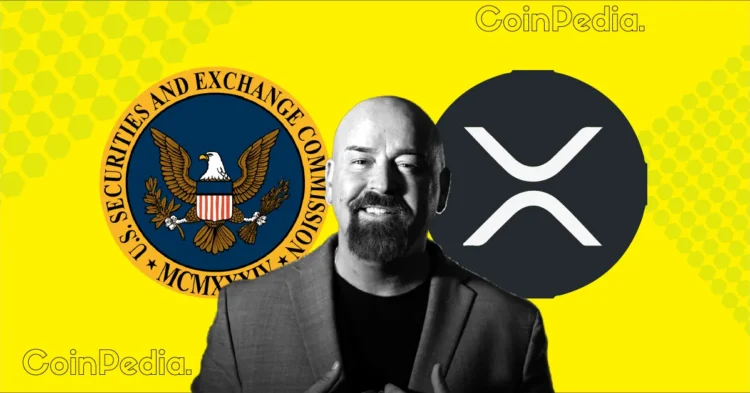The potential for the U.S. Securities and Exchange Commission (SEC) to appeal in the Ripple vs. SEC case is being discussed widely, with speculation that an appeal might drag the lawsuit into 2025. The SEC has accused Ripple of selling XRP as an unregistered security, while Ripple argues that XRP is not a security. Despite recent court victories for Ripple, the possibility of an appeal remains.
SEC’s Likely Appeal in Ripple Case
Recently, journalist Eleanor Terrett shared on X that a former SEC lawyer, who recently left the agency, revealed the SEC is likely to appeal Judge Torres’s July 2023 ruling in the Ripple case. The reason? The SEC believes the decision on XRP programmatic sales is wrong and should be challenged.
Expert Opinions and Analysis
Pro-XRP lawyer John Deaton responded and said that Judge Torres did not apply all three parts of the Howey Test. Some consider it a four-part test due to the third prong having two elements. Deaton has been involved in the Ripple case for over 2.5 years and has contributed as an Amicus Brief, submitting 3,800 XRP Holder Affidavits.
Deaton noted, “As someone who knows the Ripple case very well, considering I was an active litigant for over 2 1/2 years, and considering Judge Torres cited my Amicus Brief, and the 3,800 XRP Holder Affidavits I submitted, as well as my efforts, as Amicus Counsel, in the LBRYcom case”. He believes that an appellate court is unlikely to find that Judge Torres made an error when applying the third prong. He mentioned that the SEC didn’t present expert testimony on XRP holders (which was excluded), but the Judge did rely on the affidavits from XRP holders.
Ripple Vs SEC Appeal Deadline: What’s Next?
Deaton explained that while Judge Torres acknowledged that secondary sales could potentially be investment contracts under different circumstances, the facts in the Ripple case do not meet the Howey Test criteria. Therefore, the ruling is likely to be upheld on appeal, but this doesn’t prevent the SEC from arguing about secondary sales in future cases.
Additionally, Judge Torres ruled that secondary sales on exchanges didn’t satisfy the third prong of the Howey Test, and since all prongs must be met, she didn’t need to address the common enterprise factor. Deaton views this common enterprise factor as the weakest part of the SEC’s case. He said, “Even if the 2nd Circuit ruled Judge Torres erred applying the 3rd prong, the SEC doesn’t win the case. The case would go back to Judge Torres for her to apply the common enterprise prong and she would likely rule the SEC didn’t establish a common enterprise. If that happened, the SEC would lose AGAIN and then have to appeal all over.”
Implications for XRP Holders and Future Cases
The outcome of the Ripple vs. SEC case holds significant implications for XRP holders and the broader cryptocurrency market. The SEC’s stance on XRP as an unregistered security could set a precedent for how other cryptocurrencies are regulated. If the SEC’s appeal is successful, it could lead to stricter regulations and increased scrutiny on cryptocurrency transactions.
On the other hand, if Ripple continues to secure favorable rulings, it could bolster the argument that cryptocurrencies like XRP should not be classified as securities. This could pave the way for more clarity and leniency in cryptocurrency regulations, encouraging innovation and adoption in the sector.
Conclusion
As the Ripple vs. SEC case progresses, all eyes are on the potential appeal and its ramifications. The legal battle highlights the complexities of cryptocurrency regulation and the need for clear guidelines. Whether the SEC’s appeal succeeds or not, the case will undoubtedly play a crucial role in shaping the future of digital assets in the United States and beyond.











